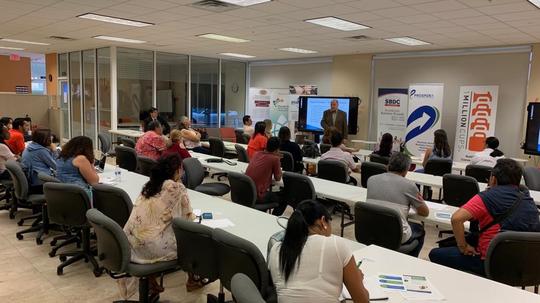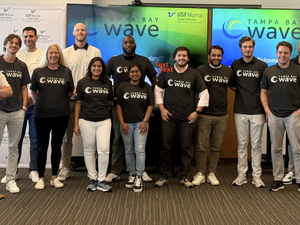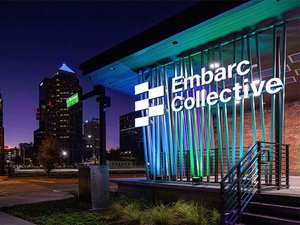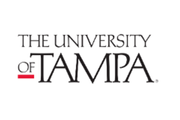
Moving to a new city is never easy, but moving to a new city where you don’t speak the language is like deciphering the rules to a made up game.
Economic development nonprofit Prospera aims to make moving a little easier for local Spanish-speaking business owners, by giving them access to resources to navigate the American business environment.
Prospera is the product of two initiatives launched in Tampa and Orlando in the 1990s. In 1991, the Hispanic Business Institute established the Hispanic Business Initiative Fund West Coast to help Hispanic entrepreneurs launch and grow their business ideas. Four years later, the Hispanic Chamber of Commerce of Metro Orlando established the Hispanic Business Initiative Fund of Greater Orlando to serve the same purpose.
The organizations merged in 2008 and over the next eight years started serving clients in Miami and Charlotte, N.C. Celebrating its 25th year in 2016, the organization changed its name to Prospera. Today, Prospera employees 24 people with offices in Tampa, Orlando, Miami and Charlotte. According to a 2016 analysis by Texas-based economic research firm AngelouEconomics, Prospera’s total economic impact at the time was around $1.5 billion.
“We help any type of business,” said Fabian Yepez, vice president of Prospera’s West Coast branch. “We’ll help the grandmother making empanadas in her garage, the person placing bids with NASA and anyone in between.”
Prospera provides Spanish-language support in four stages, said Yepez. First, the organization gives educational support in the form of seminars, orientations and specialized workshops for people just starting to open a business. From there, Prospera offers a one-on-one consultation with an in-house business consultant, who then builds a case detailing the client’s needs. The case may include entrepreneurial grants, such as marketing plans, legal assessment, accounting assessments or branding kits. Next, Prospera serves as liaison between customers and business service providers, and covers the bill for any fees. Finally, Prospera provides access to capital, working with financial institutions to get clients loans.
Not everyone requests or requires a grant. Of the 400-500 businesses Prospera West Coast serves each year, Yepez said only about a quarter receive support in the form of a grant. Other businesses owners seek advice on things like permitting and licensing processes, which may vary wildly from the business owner’s native region.
“Many times the people looking for our service have only recently arrived [in the United States],” Yepez said. “Many people come here who are well-educated and hard-working people, but it’s hard for them to start a business because the way business is done here is different than in other countries. We try to guide them.”
Those differences range minor cultural things (such as Americans’ propensity to jump right into business talk) or more complicated legal ones. Yepez pointed to Puerto Ricans who moved to the mainland after Hurricane Maria and Venezuelans who’ve fled the political crisis as examples of the distressed individuals Prospera has helped.
Some of Prospera’s success stories include Largo-based dog training company Rompin’ Rovers, Tampa-based bakery Cakes Plus, and Clearwater-based A/V production company LED PRO Events.









